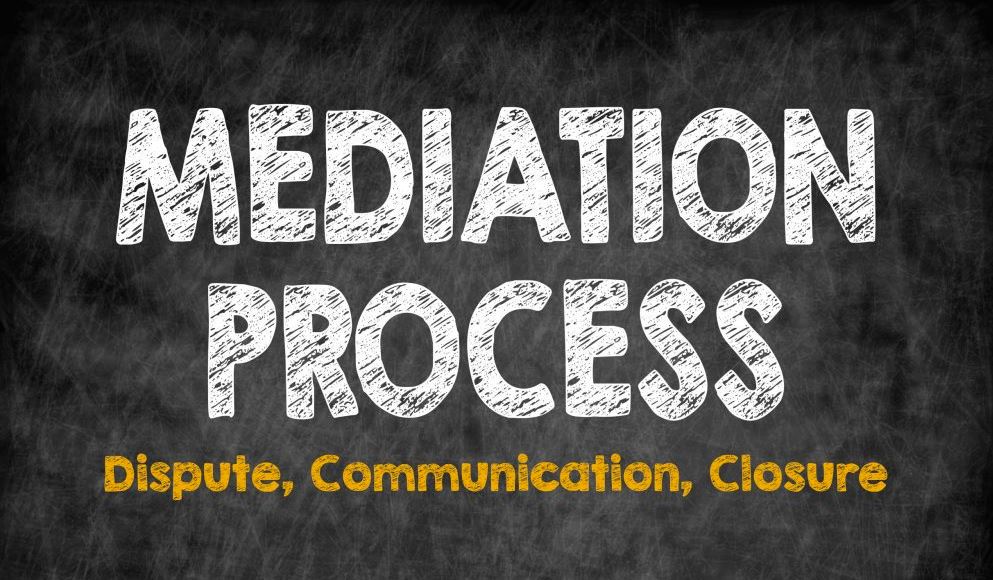What is mediation?
Mediation, as a form of alternative dispute resolution, is used in many forms of disputes – international political disputes, civil disputes and industrial disputes.
This article considers and explains the use of mediation as a process in which those involved in family relationship breakdown and disputes (married or unmarried) appoint an impartial third person, a mediator, to assist them to reach their own agreed decisions. This process can and usually does, also assist the parties with better communication. Therefore, mediation is particularly relevant and helpful in family disputes relating to child arrangements, where separating parents intend to co‑parent children after separation or divorce.
A mediator is a specially trained individual who may or may not also be legally qualified. A fundamental principle of mediation is that the mediator is neutral between the parties. Even if legally qualified as a solicitor or barrister, a mediator will not advise either party, although they can provide neutral information as to legal principles and the approach that may be taken by the Courts in certain circumstances.
Crucially, both parties can obtain independent legal advice from a solicitor prior to, during the course of, or following conclusion of, mediation, and it is advisable for them to do so. The solicitor and their firm will be independent of the mediator. Sometimes a mediator will suggest that the parties obtain advice from their solicitors on a particular issue that arises during mediation.
The mediator acts impartially in conducting any mediation process. He or she will not have any knowledge or interest regarding the parties or their matter. Apart from very limited specific circumstances where the mediator suspects that a child is suffering or likely to suffer significant harm, the mediator must not disclose any information obtained during the course of an information assessment meeting.
A mediation information and assessment meeting, or MIAM, is a preliminary meeting, conducted with the parties individually pre‑mediation. The mediator explains the process to the potential participants and assesses whether there are any safeguarding issues that would render the process inappropriate or require special arrangements. Attendance at a MIAM, save for limited exceptions, is a requirement before the party issues court proceedings for child arrangements or financial remedy.
Apart from very specific circumstances where the mediator suspects that a child is suffering or likely to suffer significant harm, the mediator must not disclose any information obtained during an information assessment meeting.
Child inclusive mediation is undertaken by mediators who have additional specialist training. With the consent of the parents the mediator meets with the child or children to independently ascertain their views.
What can I expect in mediation?
At the commencement of the mediation process, the parties will consider the terms of and sign an ‘Agreement to Mediate’. This is to ensure that the prospective participants are clear about the principles and terms of the mediation process.
It is usual, and can be more constructive, for the parties to meet in a joint meeting, whether that meeting is conducted in person or remotely. Sometimes, if there are safeguarding concerns but it has been determined that mediation can proceed, there may be ‘shuttle’ mediation, whereby the mediator meets with each party individually. Sometimes, mediation commences on this basis, but can then move to joint meetings if the parties agree.
Solicitor‑inclusive mediation is adopted in an increasing number of cases, particularly where there is complexity. The mediator remains an even‑handed facilitator, but both parties are supported by their solicitors, who can provide confidential advice during the course of the session. The solicitor will ‘bring to the table’ the detailed background knowledge of their client’s case and circumstances. For some couples, solicitor inclusive mediation may be adopted at a particular stage in mediation, whether initially or latterly, subject to the circumstances of their case.
Within the confines of the ‘Agreement to Mediate’ and the Mediators professional Code of Conduct, the process is adaptable to the participants. It is recognised that in almost all cases the process is cheaper, less stressful, and quicker than court proceedings, particularly given the increasing delays in the Family court system, at all levels.
Mediation in financial matters usually takes place over several meetings. The frequency and number of meetings will depend upon the circumstances, complexity, or level of conflict between the parties. Mediation is a voluntary process. It is also the participants process, so they can set the agenda, with guidance from the mediator.
An important tool of the mediator is to ‘reality test’ proposals made by the parties with them. For example, are one party’s proposals for housing realistic? Would it enable the other party’s housing needs to also be met on a reasonable basis and considering the mortgage capacity evidence produced by both parties in mediation discussions and their future expenditure budgets.
At the conclusion of the process, the mediator will summarise the proposals made by the parties, during their discussions in mediation, in a document known as a ‘Memorandum of Understanding’. This is a privileged, or without prejudice, document, which would not be shown to a Family Court in the event of subsequent litigation between the parties in relation to financial claims. This will be accompanied by an open financial summary or schedule, summarising the agreed information provided by the parties during the mediation.
Finally, a word of caution or reassurance, depending on a participant’s motivation and objectives; mediation is not a process that is financial disclosure ‘light’, and the same level of disclosure, and scrutiny, can be expected during the process as in court proceedings.
iFLG
The International Family Law Group LLP
www.iflg.uk.com
© December 2023
- iFLGhttps://iflg.uk.com/about-us
- iFLGhttps://iflg.uk.com/about-us
- iFLGhttps://iflg.uk.com/about-us
- iFLGhttps://iflg.uk.com/about-us










